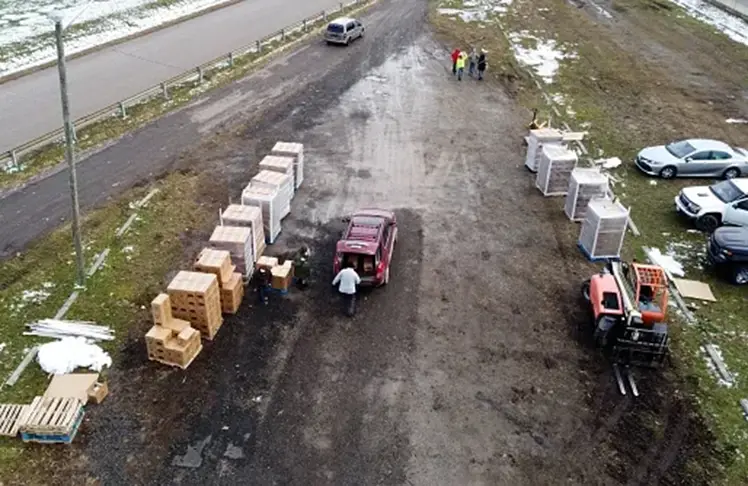
If you’re among the millions of Americans who receive food assistance from the government, you may soon get a special delivery on your doorstep from Health and Human Services Secretary Robert F. Kennedy Jr.: packages that could contain raw milk, beef tallow, and organic produce.
In exchange, Kennedy, a well-known booster of all-natural, unprocessed food, could trim or take away your SNAP benefits.
If he gets his way, Kennedy wants to mail out so-called “MAHA Boxes” — care packages containing farm-fresh, whole-food alternatives. But the plan, revealed in a leaked memo, would mean putting a potential health hazard on the front porch: food that has dubious benefits, could offend some consumers, and is at risk of spoiling before the packages are opened.
And MAHA Boxes — the acronym stands for Make America Healthy Again — would replace many features of the Supplemental Nutrition Assistance Program, also known as food stamps.
The plan surfaced in a leaked draft of a report the Trump administration planned to issue in early August concerning children’s health. The draft plan was first published by Politico and is said to have been delivered to the White House, but it isn’t publicly available.
By distributing the “MAHA Boxes,” the U.S. Department of Agriculture “will develop options to get whole, healthy food to SNAP participants,” the leaked memo says. The produce would come from domestic farms and be delivered directly to households.
How Many People Receive SNAP Benefits?
Roughly 22 million households, representing more than 40 million individuals, receive SNAP benefits. This number includes nearly 25% of the nation’s Black households. More than 40% of households receiving SNAP benefits are white, and roughly one-third of all recipients are low-wage workers.
In addition to replacing some SNAP benefits, the plan would eliminate the Commodity Supplemental Food Program, which provides canned goods to hundreds of thousands of low-income seniors. In July, when Trump’s “One Big, Beautiful Bill” budget plan became law, it cut billions of dollars from SNAP, leaving millions of people with either reduced benefits or work requirements they must meet to receive benefits.
SNAP recipients include persons with disabilities.
So far, however, the concept remains vague. In an interview with The Atlantic magazine, a White House press official said the leaked draft should be considered as “speculative literature.”
MAHA Boxes Shouldn’t Replace SNAP
Currently, SNAP offers recipients the flexibility of shopping for their own groceries with EBT debit cards. But research has found that prices remain a key barrier for 9 out of 10 recipients who want to purchase healthy food, which tends to cost more.
Incentives in many states — including doubling the benefit when buying produce at farmers’ markets — nudge SNAP recipients towards fruit and vegetable purchases.
Experts widely agree: MAHA Boxes should enhance SNAP benefits, not replace them. SNAP, they say, is highly effective at reducing hunger and poverty, especially among children and people of color. But distributing boxes of perishable farm-fresh produce on a nationwide scale poses significant logistical challenges.
The Feds Tried Food Boxes Before
A COVID-era food box initiative — the USDA Farmers to Families Food Box Program — implemented during the pandemic aimed to distribute surplus food to families, and the government sent out 173 million boxes. But in 2021, a congressional investigation found the program was so mismanaged that it paid nearly $96 million to unqualified contractors.
There were also reports that food banks and individuals received boxes that were poorly packed, had rotten produce, meat products that conflicted with religious beliefs, and food that hadn’t been kept at safe temperatures.
These choices could worsen public health instead of improving it.
Some of the food that may be considered for MAHA Boxes — like raw milk or beef tallow — raises concerns. Kennedy is a big proponent of full-fat milk products, but many nutritionists caution against them, especially in schools and programs for children.
Last year, in a dramatic personal anecdote, Kennedy admitted to eating so many tuna sandwiches that he developed mercury poisoning. Good intentions aside, experts say, these choices could worsen public health instead of improving it.
If MAHA Boxes replace SNAP benefits, rather than being an additional feature, low-income households could end up having less autonomy when making food choices.















